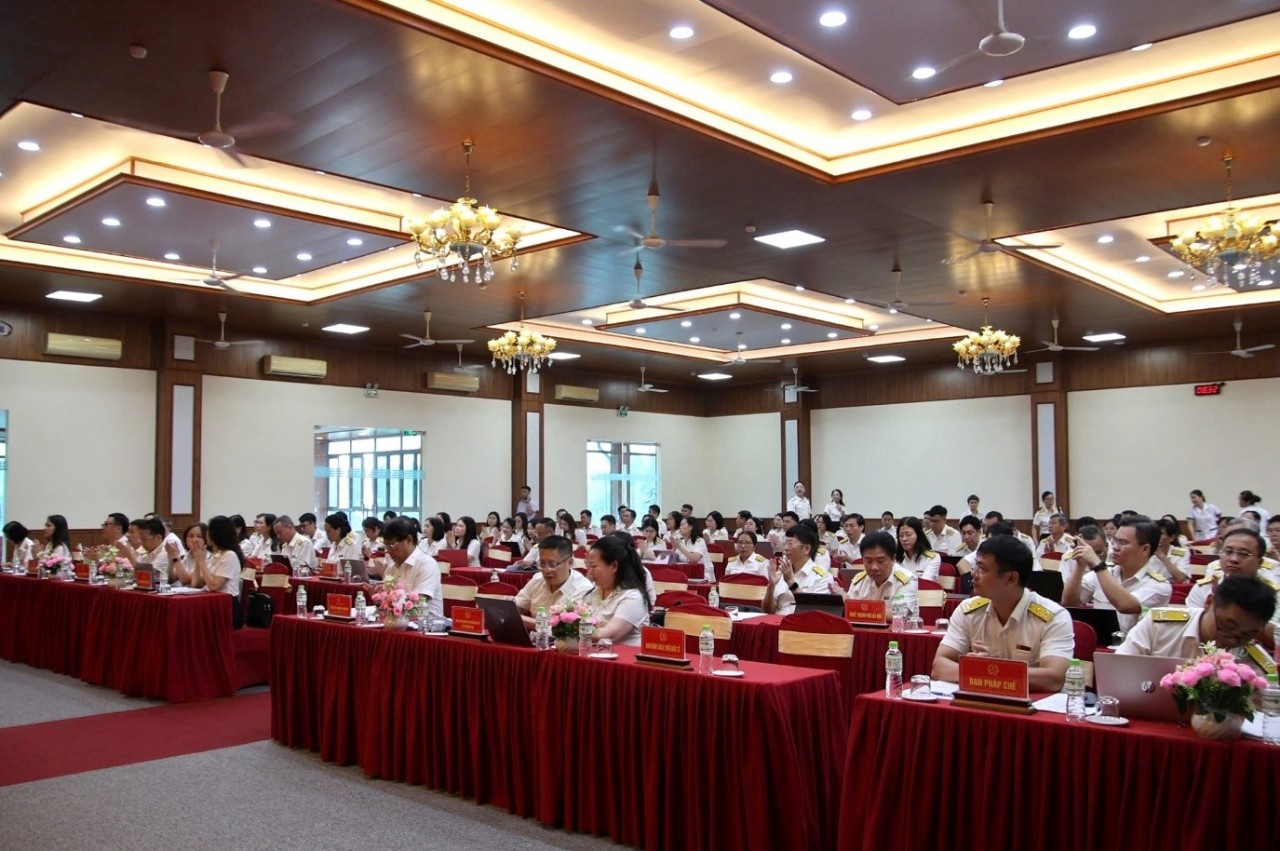The tax sector is restructuring administrative processes to build a modern, transparent system, leveraging digital technology and data to improve compliance, efficiency, and risk management.
From September 17 to 19, the General Department of Taxation under the Ministry of Finance held a workshop in Hanoi on to review and refine tax administration processes, advancing efforts to build a modern, transparent, and streamlined tax management system.
The event focused on redesigning the entire framework to make it leaner, more integrated, and technology-driven, with the aim of cutting unnecessary procedures and reducing processing times, while upholding risk management principles and taxpayer compliance oversight.
 |
| Photo source: GDT |
Speaking at the event, Dang Ngoc Minh, deputy director general of the General Department of Taxation (GDT), noted that tax administration procedures – comprising professional guidelines and processing steps – are being standardised by the tax authority to translate the amended Law on Tax Administration into effective implementation.
“These procedures are designed to safeguard taxpayers’ legitimate rights and interests while ensuring legal consistency across tax offices nationwide,” he said.
According to Minh, tax administration processes are built on the legal foundation of the Law on Tax Administration No.38/2019/QH14 and its guiding documents. However, practical implementation has revealed certain limitations, including a lack of interconnectivity between processes and underutilisation of digital tools. In some stages, responsibilities between administrative levels and departments remain unclear, posing challenges for both taxpayers and tax officials.
“In the context the Law on Tax Administration is under comprehensive review for amendment, we must ensure our processes meet the demands of a new era of management,” Minh said.
The amended law is expected to accelerate digital transformation in tax administration, enhance voluntary compliance, and strengthen risk management through its systematic application across all operations.
GDT deputy chief Minh urged participants to thoroughly review each component of the draft law, assessing its practicality and relevance. He highlighted three priorities:
First, ensuring procedures are rational and consistent, avoiding duplication while supporting smooth coordination from central to local levels.
Second, integrating technology and data to drive digital transformation, automating processes, and strengthening analysis, forecasting, and risk management.
Third, assessing the feasibility of implementation by considering resources, human capital, infrastructure, data systems, and interdepartmental coordination.
“It is important for all the attendees to contribute constructively, with clear, practical feedback. All comments would be objectively and fully recorded by the workshop secretariat for incorporation into the final draft,” said Minh.
Most delegates at the workshop agreed that the restructuring of tax administration is not just about reducing cumbersome procedures – more importantly, it is about creating a transparent, modern, and taxpayer-friendly management mechanism.
Participants highlighted that with effective use of digital technology and big data, the tax sector can significantly improve its analytical and forecasting capacity, while also making it easier and faster for businesses and individuals to fulfill their tax obligations.
The tax authority leader revealed expectations that the review workshop marks a key step in advancing broad-based reform and brings Vietnam’s tax administration system closer to international standards.
 |
Financial sector drives tax reforms to fuel private sector growth
The Ministry of Finance is advancing major tax reforms to support private sector development, aligning with national strategies and removing legal barriers to foster innovation, growth, and green transformation. |
 |
Overhaul of tax sector boosts operational effectiveness
The tax sector has embarked on a major restructuring and efficiency drive to strengthen service delivery for citizens and businesses. |
 |
Tax reform to boost fairness and growth
The Ministry of Finance is suggesting a major overhaul of personal income tax, aiming to reduce complexity, ease compliance, and encourage economic growth through a fairer, simplified structure. |





